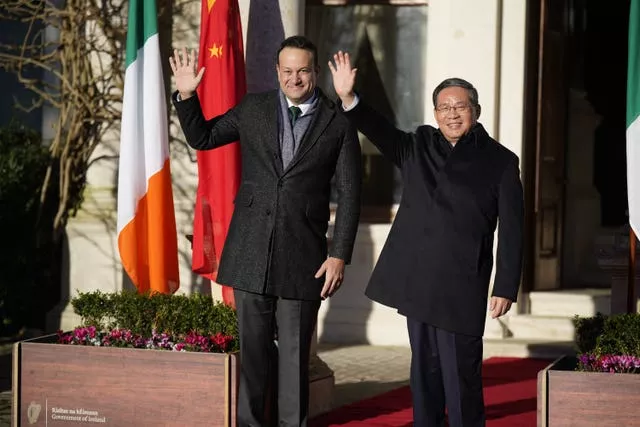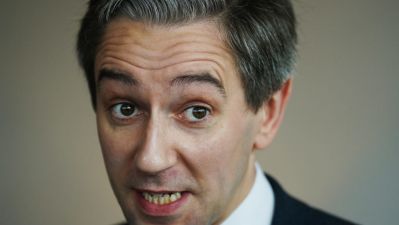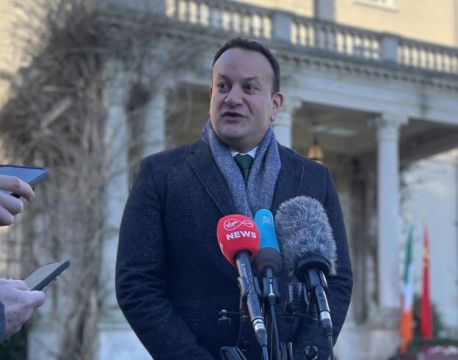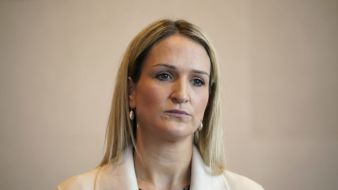Taoiseach Leo Varadkar has said local authorities cannot have an “a la carte” relationship with Government, after Mayo County Council passed a non-binding motion to end co-operation with a government department.
Mr Varadkar said he believed Fine Gael members were among the councillors that endorsed the motion to immediately stop working with the Department of Children, Equality, Disability, Integration and Youth.
It comes as local opposition to housing asylum seekers and refugees becomes more frequent across the country, with some communities arguing that they are being asked to accommodate a disproportionate number.
The Taoiseach has pledged further supports for such areas but did not give exact details of what was on offer.
“I disagree with the motion that has been passed, local authorities can’t have an a la carte relationship with central government,” he told reporters after the Chinese premier’s visit to Dublin concluded.
“A local authority – all of them – but Mayo County Council is one that would receive very significant grants from central government: from the Department of Transport for roads for example, from the Department of the Environment for other things, and you can’t say that you’re going to withdraw co-operation from one government department and then look for funding from five others.
“That’s not a tenable position, I’m afraid.”
He said he would be relaying the message to “the Fine Gael team in Mayo and everyone at Mayo County Council”.
There have been more than 101,200 arrivals from Ukraine to Ireland, with 74,500 people currently living in state-provided accommodation and more than 16,000 in employment.
Ministers have warned that the number of arriving asylum seekers will not return to pre-pandemic levels due to global instability, with approximately 15,000 international protection applicants a year now expected.
Mr Varadkar said that while Ukrainians, refugees and asylum seekers are welcome in Ireland, the Government has to “respond to genuine concerns” from locals about a lack of services.
“While they are welcome, it’s a simple fact that the number of people who’ve come to live in Ireland and come to live in certain parts of the country has changed the demographics of those areas and, in some cases, changed the economy of those areas, particularly when tourist accommodation has been taken out of use.
“So we have to accept that and have to understand why that can cause concerns in local communities and respond to that.
“The response isn’t closing our borders. That’s not realistic. There are more people on the move in the world now than any time since the Second World War and migration is a challenge in every developed country.
“But we have to respond to genuine concerns from people around the country who have just seen this change happen very quickly and are worried about it.”

State accommodation for Ukrainians is to be limited from February amid a housing shortage that has seen hundreds of asylum seekers left homeless in freezing temperatures.
The government is now working to find a solution to several protests at asylum seekers being moved into disused and used buildings – including an expansion of the €50 million Community Recognition Fund launched last year.
“We have a Cabinet sub-committee on Ukrainian migration in the last week in January, and I’ve asked ministers to put together the package between now and then so that it can be approved at the first Cabinet meeting in February,” Mr Varadkar said.

“We have the Community Recognition Fund already, so one option is opening that to new applications or finding ways to make it more flexible, because there has been some difficulty in drawing down some of the existing money and getting some of the existing projects off the ground.
“But more so than that, I particularly asked Health, Education and Justice to see what they could do. So when it comes to justice, obviously it’s around policing resources, when it comes to education, it’s around schools, when it comes to health it is particularly around primary care.
“A lot of this happening already but I really want to emphasise that we need to particularly focus on those parts of the country that have seen a very large number of people from Ukraine and people seeking international protection move into their areas.”







